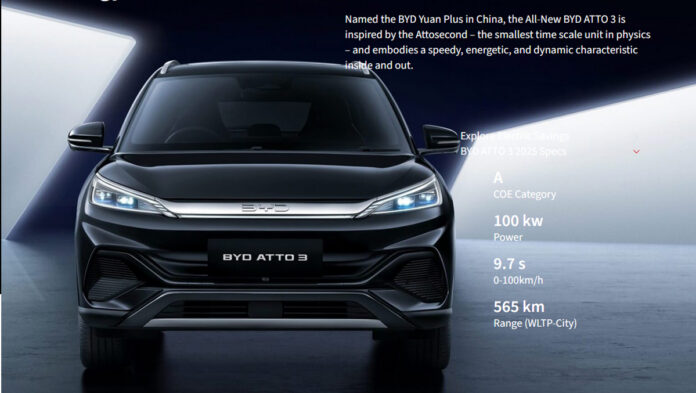July 29, Colombo (LNW): A large consignment of Chinese-manufactured electric vehicles has been held at Colombo Port by Sri Lanka Customs amid growing concerns over possible underreporting of motor specifications that could significantly impact import taxes.
According to a report by Economy Next, close to 1,000 units of the BYD ATTO 3—imported across six separate shipments this month—are now under scrutiny after officials questioned whether the motor power declared in shipping documents accurately reflects the vehicles’ true specifications.
The vehicles were reportedly declared as having 100-kilowatt (kW) motors, which fall under a lower excise duty bracket. However, Customs investigators suspect that many of the vehicles may in fact be equipped with more powerful 150kW motors.
Under Sri Lanka’s current tax framework, electric vehicles rated at 100kW are liable for around Rs. 2.4 million in direct duties, while the 150kW category could attract taxes amounting to approximately Rs. 5.4 million—excluding additional levies.
A misclassification, whether intentional or accidental, could therefore result in substantial tax shortfalls and serious legal implications for the importers.
The matter drew public attention after it was raised in Parliament by Opposition MP Mujibur Rahman, who highlighted a sharp inconsistency between tax assessments for new and used versions of the same model.
He questioned why new vehicles were being taxed under the lower bracket while pre-owned models—allegedly with identical specifications—were being charged far higher duties. Rahman also raised concerns about potential favouritism or political connections that may have influenced the clearance of earlier consignments.
According to available reports, over 1,000 BYD ATTO 3 units have already been cleared through Customs under the 100kW classification. Yet, conflicting information remains: while BYD does manufacture a 100kW variant for certain overseas markets, its global website lists the 150kW version as the standard specification for the ATTO 3.
Customs officials have launched a detailed technical and regulatory investigation to determine whether the declarations were intentionally misrepresented to benefit from lower import taxes. If the vehicles are ultimately found to exceed the declared motor capacity, authorities may impose retrospective duties and penalties, potentially passing additional costs onto end customers.
Meanwhile, vehicle buyers who were expecting deliveries in the coming weeks are facing unexpected delays. Several customers reported being informed of a hold-up by the local agent, though no official explanation has been provided. The situation has left many prospective owners uncertain about the status of their purchases.

